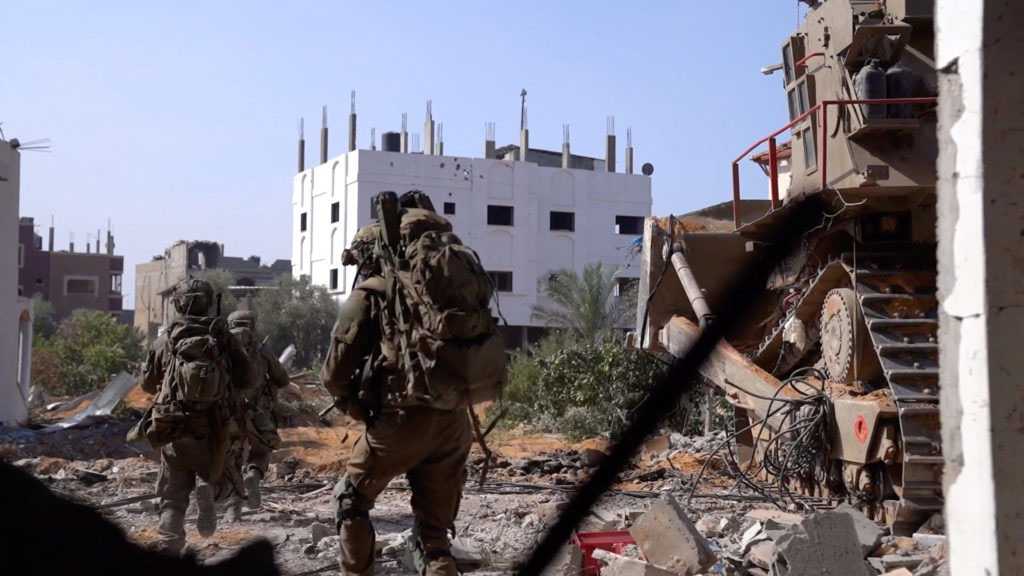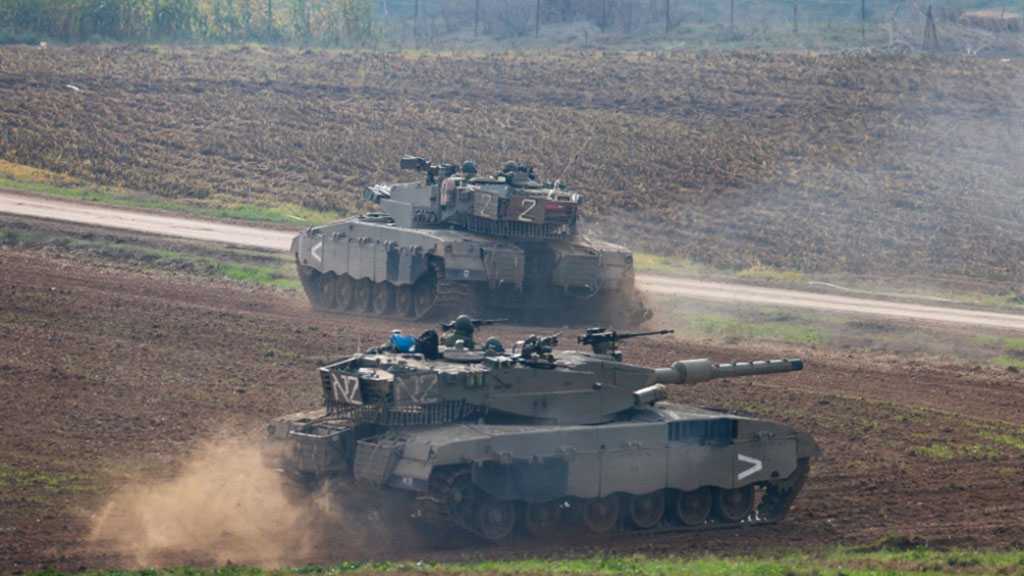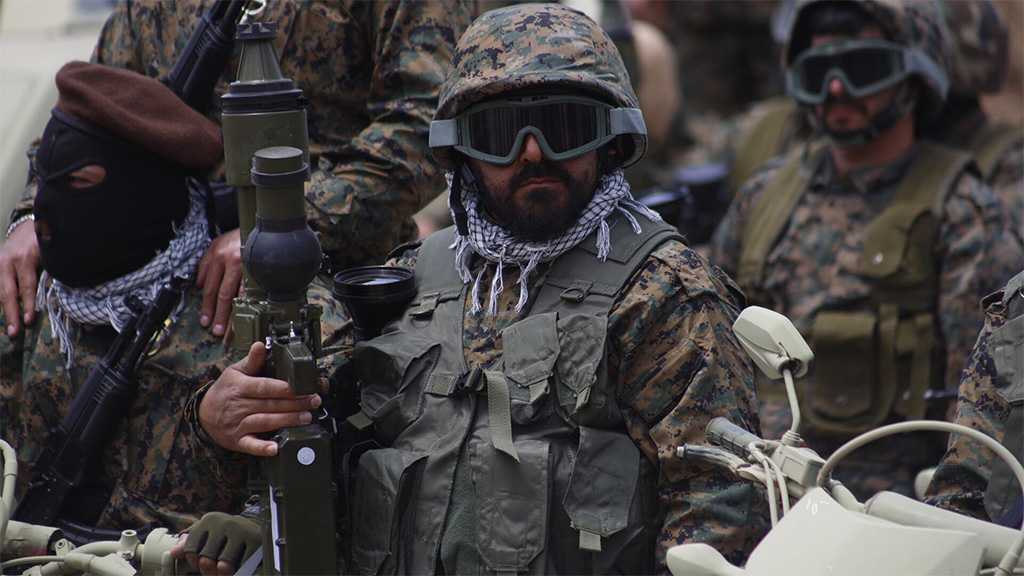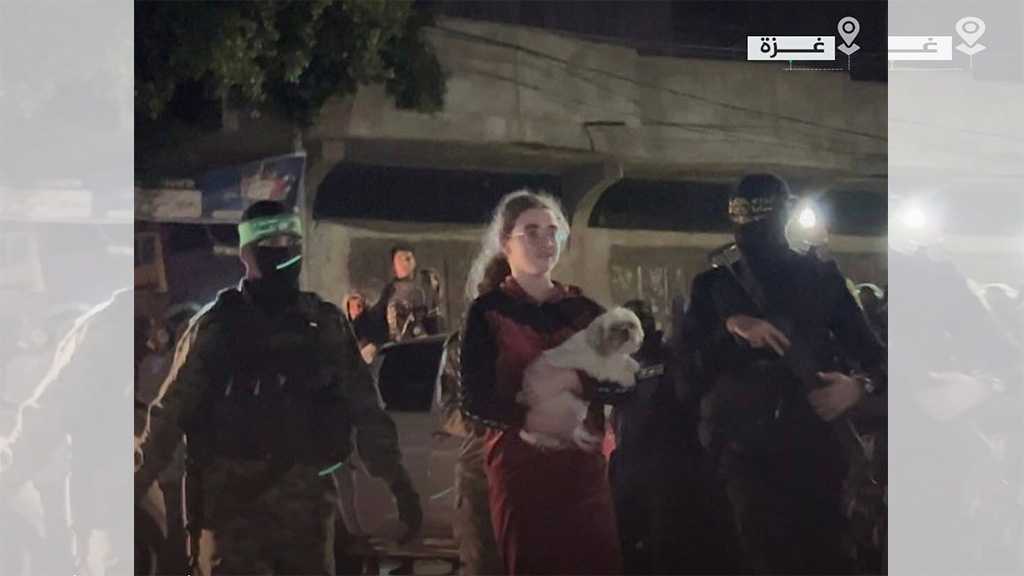
Haniyeh to Head Hamas Political Bureau: Reestablish Relations with Tehran
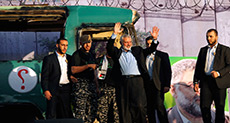
Qasim S. Qasim
With the beginning of next month, Hamas will announce the election of Ismail Haniyeh as the new president of the Political Bureau. Consensus over the name dominated the situation, and the only thing missing were the logistical details for transferring "Abu Abed" from Gaza to his new place of residence. One of his first tasks is to reestablish relations with the axis of resistance and bring it back to its previous state.
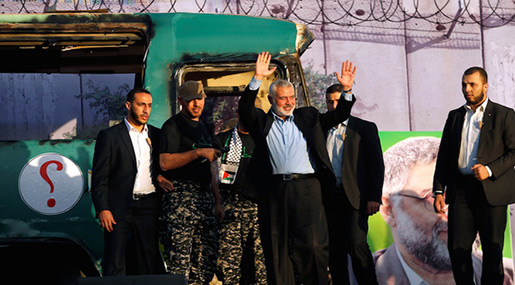
"The resistance movement Hamas" is close to completing its internal elections. The majority of the movement's leaders agree that the leader Ismail Haniyeh is the next president of the new Political Bureau. Sources in the leadership add that it is expected that the "names of members of the Bureau will be announced in early April."
The election of Haniyeh as president of the Political Bureau came after lengthy internal consultations and a review conducted by the movement. At one point during the discussion, talk centered around re-posting the leader Moussa Abu Marzouk, because he used to occupy that position, abandoning it after his arrest in the United States in 1995. However, after the Saudi newspaper "Asharq Alawsat" leaked an audio recording of him attacking the Islamic Republic, his chances slumped especially since the main task of any new head of the Political Bureau will be restoring relations with Iran to what they were before the outbreak of the Syrian crisis.
The Hamas leadership is aware of the difficulty it faces when it comes to returning its supporters to Tehran. But the long review led to an obvious conclusion; the resistance and the military need this relationship, because Iran is the only country willing to provide arms. Sources in Hamas add, "Some Arab countries support the movement with money. There are other countries that feel embarrassed to support us, but Iran is the only country that provides us with arms and military expertise."
Hence, following the election of Haniyeh as president of the Political Bureau, he will go on a tour to a number of Arab and Islamic capitals, and the Islamic Republic will be one of the countries he visits. The sources also affirm that "the visit will culminate in the convening of a meeting with the Supreme Leader of the Islamic Revolution Ali Khamenei." The movement's leaders speak with absolute certainty that Haniyeh is the "next president" as they do not expect surprises with regard to him not being elected. As for Abu Marzouk, they said that he might remain vice president.
What about Khaled Meshaal? They add that "he may be a member of the Shura Council. He is likely to reject any role to give way for the new leadership to manage things without direct influence." But Abu al-Walid would have his influence since he was head of the Political Bureau for twenty years, and many of the members of the movement are loyal to him. The Hamas leadership is aware of this, and knows that "he will be present in the discussions of the Political Bureau, but any decision will be passed after being approved in the bureau." The sources also add, "In the end, loyalty is to the institutions of the movement and not to its members."
According to information, following the completion of the election of Yahya Sinwar as the leader of the Political Bureau in Gaza, Haniyeh is preparing to leave the Strip permanently in order to be able to lead the movement from the outside which will allow him freedom of movement and the ability to travel. As for the place of his residence, sources said that there are several options, including "the possibility of moving between two places, the first is in the Qatari capital Doha. The second capital has not been agreed yet, noting that Beirut is among the options."
Coinciding with the announcement of the new officers in the mentioned date, the movement will announce its new political document. The leaders of "Hamas" said that "five years ago discussions were held on the need to launch a new document. In the last two years, we started consultation on the items of the new document, which took into account 25 years of the movement's work as well as its intellectual and ideological development." The leadership stressed that "the document has nothing to do with being close to any Arab country or what is happening in some countries." The goal is to express the positions of the movement and to cut off confusion on some things." The document includes "the movement's definition of the conflict with the "Israeli" enemy and its relationship with the Arab and Muslim nation."
The document did not mention the "Muslim Brotherhood" and did not introduce "Hamas" as its striking wing. But one of the movement's leaders said: "We do not deny our Brotherhood origins, but we were never organizationally linked to the Brotherhood in Egypt." The document also addresses the movement's view regarding the Christians in Palestine, classifying them an essential component of Palestinian society, as well as the condition of Palestinian women. This update was accompanied by a surprising development for a movement that called for the liberation of Palestine from the sea to the river. The document included Hamas's recognition of a state along the 1967 borders. Here, the same sources explain that this "recognition comes within the context of talking about the need to liberate all of Palestine ... and we said we do not object to establish a state on the 1967 borders with al-Quds as the capital. But on the other hand, we did not recognize "Israel", which means we reserve our right to resist."
The sources carry on to say, "Recognizing a state along the '67 borders is to open the way for our partners in the nation, but we will certainly not change our convictions for the need to fight the "Israeli" enemy and liberate all the land." According to one of the movement's leaders, "this document was not endorsed aiming to come closer to the initiative of the International Quartet envoy Tony Blair, who has sought a long-term truce with the enemy. The election of president Sinwar for the Political Bureau in Gaza has put an end to such rumors." He continued, "Electing Sinwar sent a message to everyone that we are a resistance movement. Sinwar is known as one of the strongest believers of the resistance work. Within the next 100 days, Sinwar will implement several plans, including the formation of a shadow government to manage the affairs of Gaza and then to take care of the internal affairs of the organization."
hamas | israel | iran | saudi arabia | palestine
Source: Al-Akhbar Newspaper, Translated and Edited by website team
